After months of drama, scandals, and mudslinging in what South Koreans have coined the “Squid Game election,” the conservative People Power Party candidate Yoon Suk-yeol emerged victorious in a tight contest. Yoon won by a razor-thin margin of 0.8% over his Democratic Party rival Lee Jae-myung. What does Yoon’s election mean for South Korean domestic politics and foreign policy?
The conservative comeback
Yoon’s victory is a remarkable achievement when considering the conservative party’s ignoble defeat just five years ago. Marred by major scandals, the last conservative president, Park Geun-hye (2013-2017), was impeached following a wave of candlelight protests demanding her resignation. Park’s downfall split the conservative party into at least three different camps.
After three years of meandering in political darkness, and a disastrous showing in the 2020 midterm elections, conservatives last year performed surprisingly well in two important mayoral races in Seoul and Busan, South Korea’s two largest cities. Those wins paved the way for a conservative comeback, even if some conservative voters lacked enthusiasm for their candidate.
Can conservatives and progressives work together in a hyperpartisan climate?
Despite the country posting record high daily cases (close to 300,000) of the coronavirus during election week, voter turnout was 77% with over one-third of voters casting early ballots. With high turnout and a peaceful transfer of power now underway from ruling to opposition party, South Korea’s election may look like a win for democracy in an era of global democratic backsliding. However, the bitter, win-at-all costs presidential campaign demonstrated just how polarized the South Korean electorate has become in recent years.
Yoon’s slim margin of victory — and the fact that nearly half the country voted for his Democratic Party opponent — may make it difficult for the president-elect to mobilize the support needed to successfully implement key domestic campaign pledges. This includes Yoon’s plan to boost economic growth by scaling back corporate regulations and lowering taxes. Similarly, Yoon’s plan to address housing shortages and sky-high prices includes easing loan restrictions and regulations in the private sector rental market. To create more jobs, Yoon will lean on incentivizing private sector job growth by relaxing regulations and promoting start-ups, small and medium-sized firms, and high-tech ventures rather than leaning on government support. Supporters of the progressive party will likely push back against Yoon’s market-oriented approach to economic expansion and jobs growth. With the election now over, it remains to be seen whether conservatives and progressives can work together in a hyperpartisan climate.
Political retribution and politically-motivated investigations have also been a common occurrence following South Korean elections. After serving in office, almost every president since the 1980s has been at the center of a major investigation. Four presidents have served prison time (and a fifth tragically committed suicide). In the aftermath of the Park Geun-hye scandal, the outgoing Moon Jae-in government was particularly zealous in investigating and purging government officials. In the absence of tolerance and forbearance, conservatives may be looking for payback in the first year of Yoon’s government. Comments made by Yoon Suk-yeol’s wife that she would send journalists critical of her husband to jail was likely made in the heat of the moment, but they are reflective of how conservative governments have operated in the past, keeping blacklists against those critical of their rule.
An activist, values-driven foreign policy
President-elect Yoon Suk-yeol, best known as a former prosecutor general under the Moon government, has no prior foreign policy experience. However, he is surrounded by seasoned veterans and experts, led by former South Korean vice-foreign minister and Korea University professor Kim Sung-han. Yoon has been a staunch advocate of the U.S.-South Korea alliance, and he will work closely with the Biden administration in pursuit of a free and open Indo-Pacific. Most notably, we should expect to see South Korea more actively engaging the U.S. and other Quadrilateral Security Dialogue countries (Australia, India, and Japan) in the Indo-Pacific on issues including maritime security, cybersecurity, climate change, and COVID-19 vaccine distribution, even if formal Quad membership remains less likely. Under Yoon, South Korea will also likely support the U.S. Indo-Pacific Economic Framework, even as Seoul pursues membership in the Comprehensive and Progressive Agreement for Trans-Pacific Partnership (CPTPP).
South Korea may also seek to join mini-laterals or consider institutionalizing trilaterals such as an Australia-U.S.-South Korea dialogue. Seoul has thus far shied away from informal coalitions to avoid the optics of hopping onto an anti-China bandwagon. However, backed by domestic anti-China sentiment, the new government will be less deferential to China and more vocal on issues pertaining to human rights and freedom of expression in Xinjiang and Hong Kong.
Yoon, like his conservative predecessors, views North Korea with greater skepticism than the outgoing Moon government which pushed for inter-Korea engagement and an end-of-war declaration even into Moon’s final months in office. The Yoon government will still offer humanitarian assistance and seek opportunities for diplomacy and dialogue. However, North Korea’s steady stream of missile launches this year, coupled with the cold shoulder it has given President Moon of late and U.S. attention diverted to Russia’s invasion of Ukraine means that we will likely see a prolonged period of non-engagement.
Another difficult issue Yoon must address is improving South Korea-Japan relations. Here the Yoon government may find more success than his predecessor. First, Yoon consistently conveyed his desire to improve relations with Japan during the campaign, which offers an opportunity and greater incentive for Tokyo to reach out to the new president. Second, Yoon’s foreign policy views, particularly on North Korea but also on the Indo-Pacific, are closer to Tokyo’s, which allows for deeper functional cooperation. Third, Yoon may be more willing to downplay historical issues tied to past conflict for the sake of improving bilateral as well as U.S.-Japan-South Korea trilateral relations. Yoon is therefore less likely to weaponize South Korea-Japan ties for domestic political gain, which often results in prolonged periods of bilateral antagonism.
Boosting domestic legitimacy and South Korea’s global status
Inauguration day is scheduled for May 10. Until then, the transition team will be working hard to fill positions with personnel that can lay out Yoon’s domestic and foreign policy vision. If President-elect Yoon can take the high road by reaching out to progressives early on rather than seeking revenge against political opponents, maintain transparency, and pursue an activist foreign policy based on core values, his government will be in a stronger position to elevate his domestic legitimacy and South Korea’s global status moving forward.
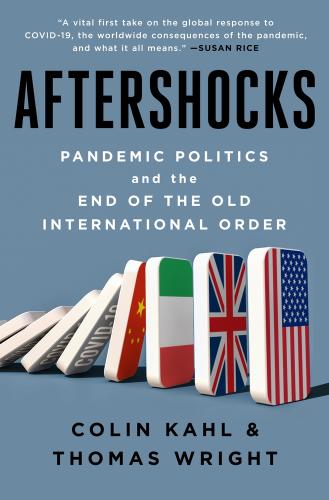
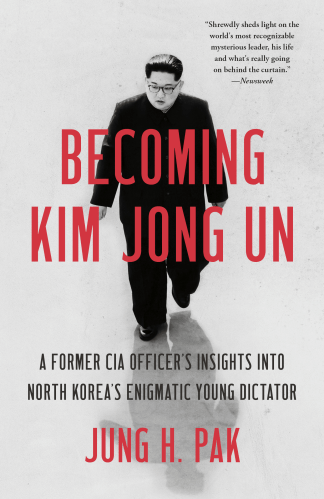
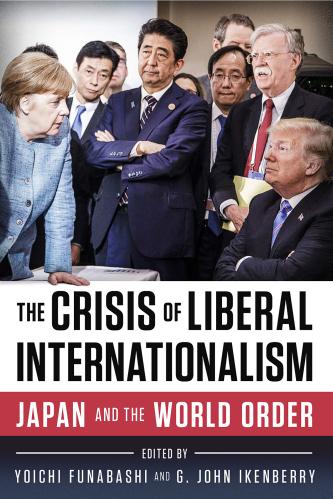
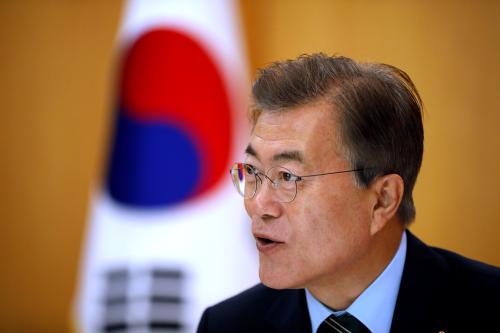
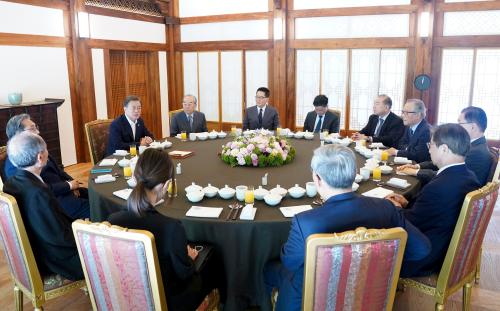
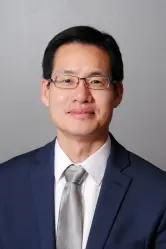
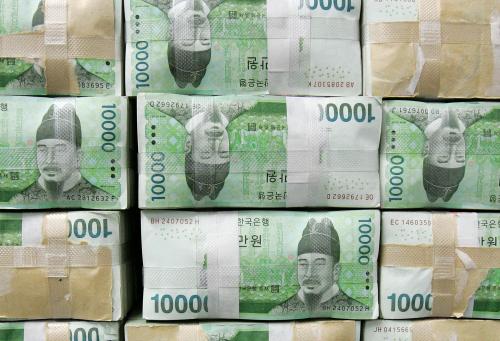


Commentary
What to expect from the incoming South Korean president’s domestic and foreign policy agendas
March 10, 2022